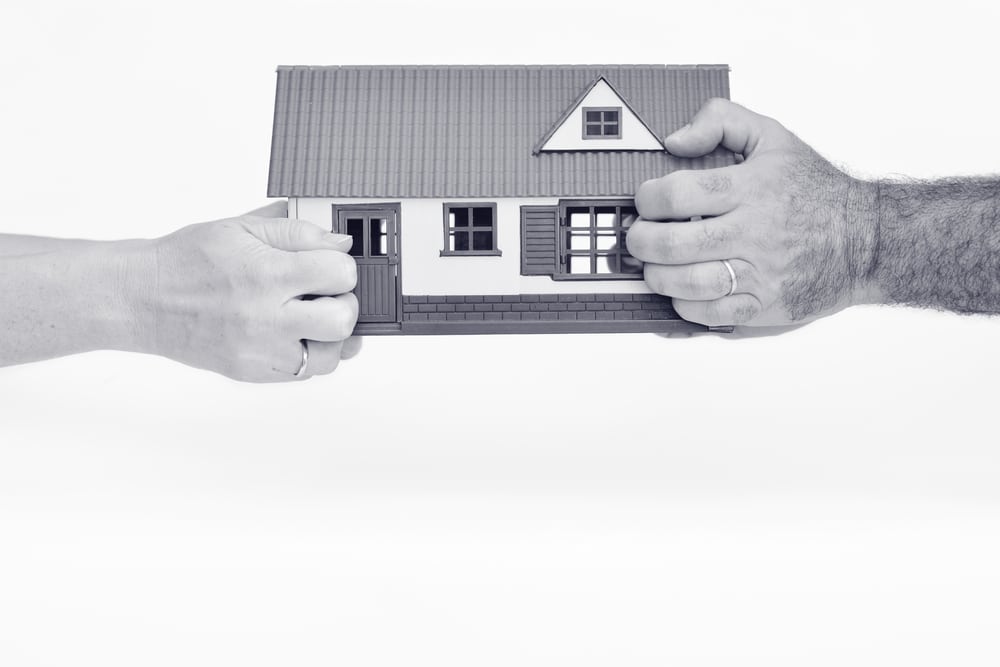
21 Jan How to Keep the Marital Residence after Divorce
No one foresees a divorce when tying the knot, but for most, it is the only means to an end of a problem that is irreparable. Similarly to a wedding, divorces are time-consuming, costly, frustrating, and challenging for everyone involved. Instead of bringing two people together, it has the opportunity to divide the spouses and their valuables.
If a spouse owned property before getting married (thereby creating a “pre-marital asset“), then they can (typically) remain the owner of the home. However, assets and debts accrued during the marriage and before the date of filing the petition for divorce are usually divided between both parties. Since the house is the most valuable marital asset and the mortgage is usually the largest debt, deciding who gets to remain in the house can be the most difficult decision both parties will have to make.
Just as any other property, if one party owned the house before marriage, it is usually not placed in the category of marital assets, and it (typically) remains the property of the original owner. If the other spouse made any contribution to the house like remodeling and upkeep to raise the value or made mortgage payments, then he or she can be compensated. The section that follows includes a few methods to help those going through a divorce determine how to remain in the home – if possible.
During the Litigation
If the house is a marital asset, meaning it was acquired by both parties during the course of the marriage, you cannot be forced out of your home by the other spouse during the litigation, unless there are some set of extreme circumstances that warrant it, such as domestic violence. Typically, the only way you can be forced out of your home is if the other spouse is granted an order of exclusive occupancy from the court. Under this decree, you can change the locks and forbid the other spouse from entering the home.
After the Litigation
What happens after the divorce is a typically dealt with pragmatically. Can you afford to pay for the home on your own? Will you be able to refinance it in your own name? If not, then the discussion will have to revolve around holding onto the home as your portion of the division of the marital estate or a component of alimony payments.
Joint Ownership After the Divorce
Another way to hold onto the home in order to stabilize the home of the children (until they reach the age of 18) is to continue to own the home jointly for an extended period of time after the divorce. Once the children have reached the age of majority, you can buy the other spouse out (or vice-versa). Co-ownership is also convenient when you want to remain in the home, but you cannot afford to buy out the other spouse all at once. During a devastating economy, it may be wise to wait for house prices to rise. However, if you are not dissolving the marriage amicably, this may cause problems down the road.
Be aware that there may be clauses in the agreement that state that the house should be immediately put up for sale, should you become remarried or cohabitate with someone else. If that is the case, then the agreement must state how the home will be divided when it is finally sold, taking into consideration any improvements that may be made after the parties’ divorce.
If you are going this route, the co-ownership agreement should specify the allocation of house payments, taxes, repairs and maintenance and what action will be taken if a spouse fails to meet those responsibilities. Keep in mind that co-ownership has risks other than having to live under the same roof as your spouse longer than you would like.
A shared mortgage can also complicate things when you are trying to get credit for other purposes, like buying another home. Your credit rating could suffer if the other spouse does not pay their share of the mortgage on time.
Call a Florida Divorce Attorney
A divorce is an end to something that you thought would be everlasting, and the start of something new. The process can be quite stressful, especially when handling the division of assets and trying to remain in the marital home, so it is wise to contact a lawyer. The law surrounding such complications are unique in each case and every state. This article only touches upon a few ways in which you can remain in the marital household.
For more detailed, specific information, please contact a divorce lawyer in the state of which you are trying to terminate your marriage. If you have more questions, please feel free to contact the Law Office of Jeffrey Alan Aenlle, PA, where they focus their practice solely on Florida Family Law Litigation.

